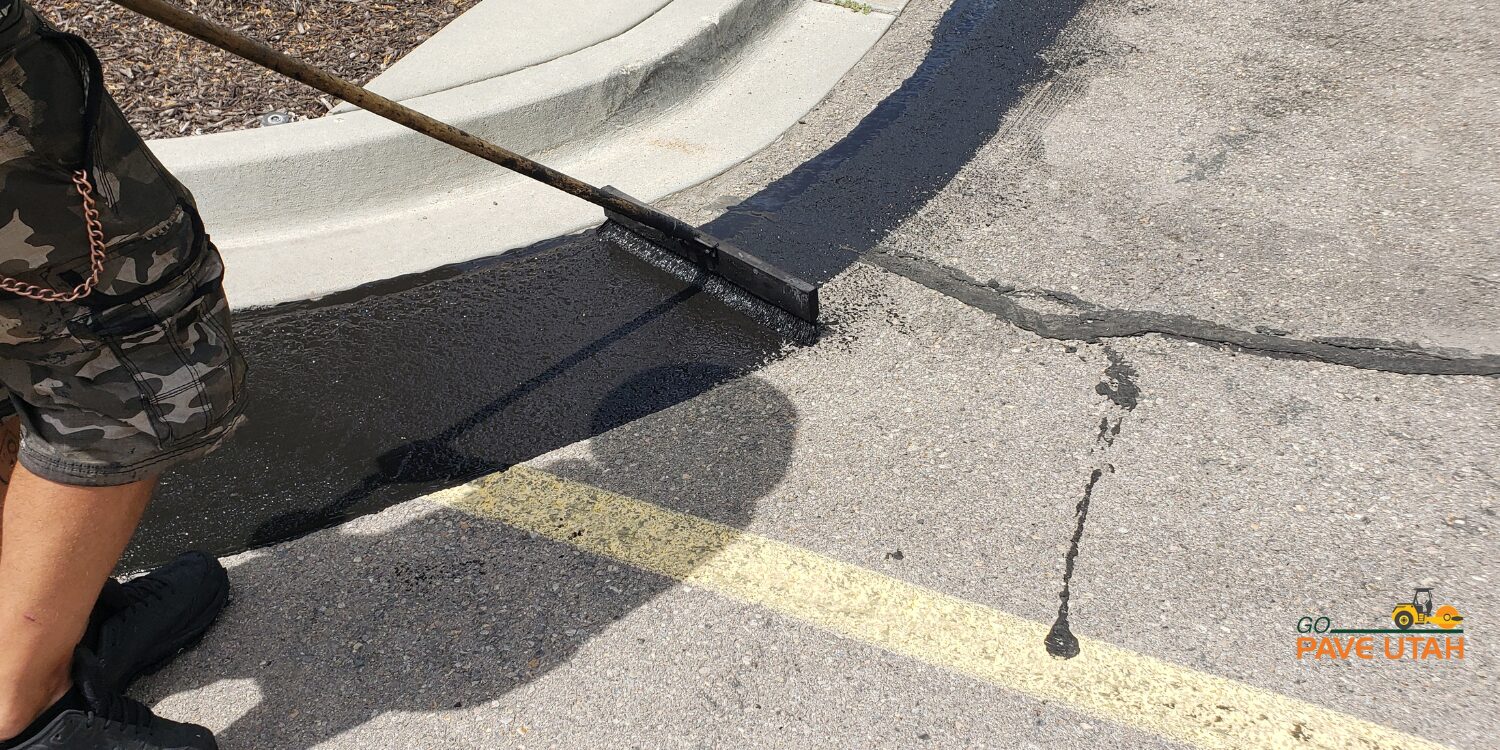Warm Mix Asphalt: A Sustainable Option for Sidewalk
Warm Mix Asphalt (HMA) has emerged as a leading lasting option for pavement solutions, providing a myriad of ingenious technologies and ecological advantages. Its ability to decrease and reuse materials energy usage provides an engaging situation for its adoption in road construction jobs. Furthermore, the lasting efficiency and sturdiness of HMA make it a recommended choice for facilities development. As the need for green construction methods expands, exploring the subtleties of HMA's sustainability can give important understandings into the future of pavement options.
Environmental Benefits of Hot Mix Asphalt

Additionally, Warm Mix Asphalt assists to alleviate city warmth island impacts. Its dark shade takes in sunlight, lowering the amount of warm mirrored back into the ambience compared to lighter-colored pavements. This can decrease ambient temperature levels in urban locations, lowering the need for cooling and ultimately minimizing energy consumption.
On top of that, Warm Mix Asphalt contributes to improved stormwater monitoring. Its porous nature allows water to charge and infiltrate the pavement groundwater products, minimizing drainage and the danger of flooding. These ecological advantages make Warm Mix Asphalt a lasting selection for paving roadways and highways.
Power Performance in HMA Manufacturing
Is energy effectiveness an essential element in the production of Warm Mix Asphalt (HMA)? Definitely. Power plays a substantial role in the production of HMA, impacting both price and environmental sustainability. One vital facet of power effectiveness in HMA manufacturing is using cozy mix asphalt (WMA) innovations (hot mix asphalt). WMA permits the blending and positioning of asphalt at reduced temperature levels contrasted to traditional hot mix asphalt, resulting in decreased power usage during manufacturing. This process not just lowers gas usage yet also reduces greenhouse gas exhausts, making it a much more environmentally friendly alternative.
Moreover, advancements in plant technologies have actually resulted in even more energy-efficient HMA production procedures. Modern plants are made with functions like recycled asphalt sidewalk (RAP) handling capabilities, effective burner systems, and enhanced insulation, all adding to energy financial savings. By maximizing energy use in HMA production, the sector can minimize its carbon impact while maintaining top notch sidewalk materials. Power efficiency is, for that reason, an essential consideration in ensuring the sustainability of Warm Mix Asphalt production.
Recyclability of Hot Mix Asphalt
The recyclability of Hot Mix Asphalt (HMA) is a critical facet of its sustainability and lasting ecological impact. HMA is one of the most recycled products in the USA, with over 100 million lots of redeemed asphalt pavement (RAP) being reused every year in brand-new sidewalk construction. Recycling HMA provides a number of environmental benefits, such as minimizing the need for virgin products, decreasing power usage during production, and lowering the amount of waste sent out to land fills.
The process of reusing HMA involves grating the existing pavement, squashing it into smaller sized items, and mixing it with brand-new aggregate and asphalt binder to create a recycled mix. This recycled mix can frequently execute as well as or also far better than traditional HMA, while calling for less raw materials and generating reduced greenhouse gas discharges. By incorporating RAP into new pavement projects, road firms can conserve natural resources, reduce prices, and minimize the ecological impact of road building and upkeep activities. Overall, the recyclability of HMA plays a substantial role in advertising sustainable practices within the pavement market.

Long-Term Performance of HMA
Asphalt sidewalks demonstrate sturdiness and resilience over a prolonged period, reflecting the long-lasting performance of Warm Mix Asphalt (HMA) Additionally, developments in HMA technology, such as the usage of polymer-modified binders and warm mix asphalt, have better improved the resilience and durability of HMA sidewalks. By prioritizing high quality building and construction and maintenance practices, HMA proceeds to show itself as a sustainable and affordable service for durable pavement framework.

HMA: Resilience and Sustainability
Demonstrating both longevity and sustainability, Warm Mix Asphalt (HMA) has come to be a cornerstone in the building of lasting sidewalk frameworks - hot mix asphalt. HMA's longevity stems from its capacity to endure heavy lots, these details extreme climate conditions, and high traffic quantities, making it a reputable choice for roadways, highways, and flight terminal runways. The composition of HMA, which usually includes accumulations, binder, and filler, plays an important role in improving its durability and resistance to damage
In addition, HMA's sustainability depends on its recyclability and energy-efficient production procedure. The capacity to reuse redeemed asphalt sidewalk (RAP) in brand-new HMA combinations reduces the demand for virgin materials and reduces the environmental impact of sidewalk building and upkeep. In addition, the power performance of creating read here HMA hinges on its reduced blending temperatures contrasted to various other pavement products, resulting in minimized power consumption and greenhouse gas exhausts.
Final Thought
In verdict, hot mix asphalt (HMA) supplies a sustainable remedy for pavement with its environmentally pleasant attributes. HMA's recyclability, energy performance in manufacturing, and long-lasting longevity make it an eco-friendly option for roadway building.
HMA is one of the most recycled materials in the United States, with over 100 million lots of recovered asphalt pavement (RAP) being recycled annually in brand-new sidewalk building.The process of reusing HMA involves grating the existing pavement, squashing it into smaller items, and blending it with brand-new accumulation look at this site and asphalt binder to create a recycled mix.Asphalt pavements show longevity and resilience over an extensive period, mirroring the long-term performance of Warm Mix Asphalt (HMA) In addition, innovations in HMA innovation, such as the usage of polymer-modified binders and warm mix asphalt, have actually further enhanced the durability and long life of HMA sidewalks. The capability to recycle reclaimed asphalt pavement (RAP) in brand-new HMA blends lowers the demand for virgin products and minimizes the ecological influence of sidewalk building and upkeep.